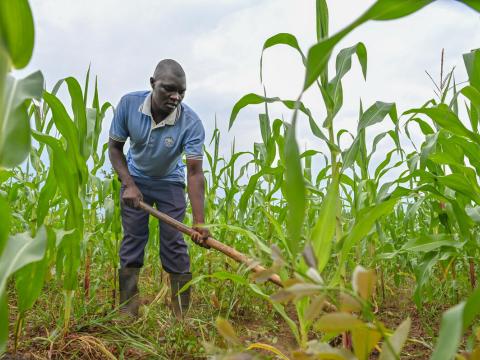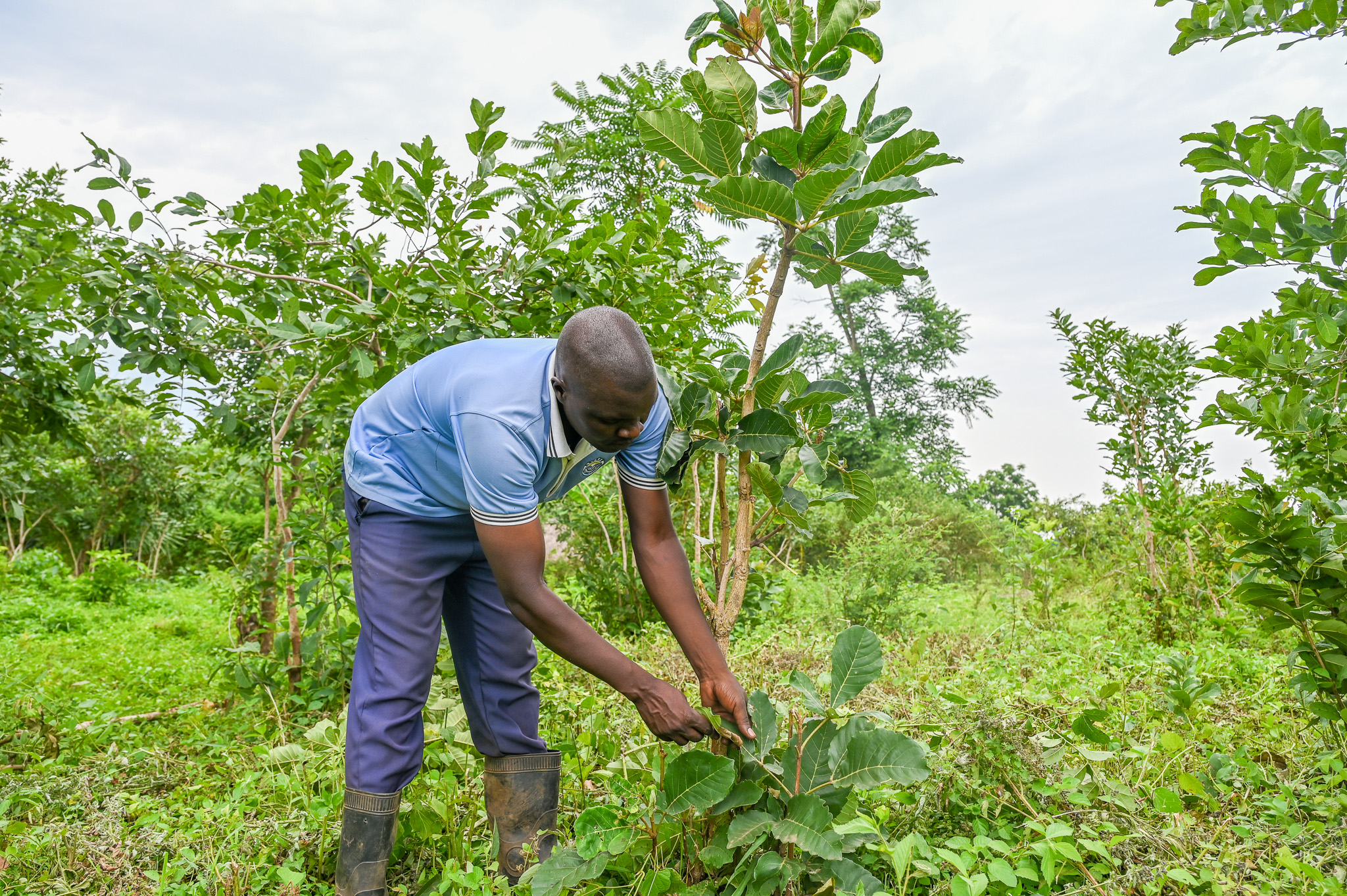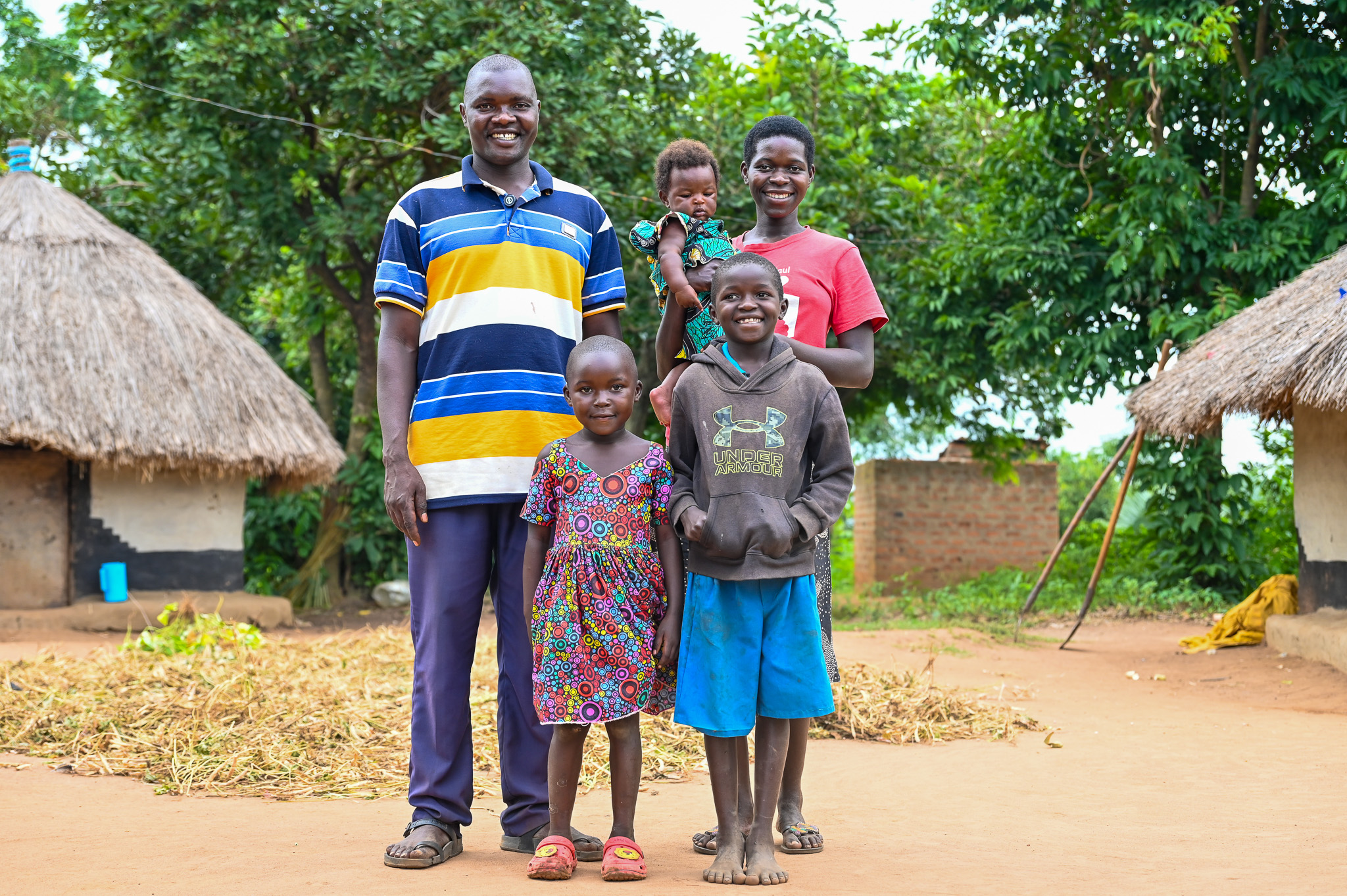FMNR has improved my soil, increased my crop yields, and given my family a healthier environment

For years, Alex Alinga, a 33-year-old farmer from Apenaony village, Alito Sub- County Kole District, faced the devastating consequences of environmental degradation. His family’s livelihood was under threat due to widespread deforestation, uncontrolled tree cutting, and poor farming practices. Without the shade of indigenous trees, his crops suffered from excessive sun exposure, leading to reduced yields. The destruction of trees contributed to soil infertility, climate variability, and health issues caused by smoke from traditional cooking methods.
“Before World Vision came to our community, my family and I were among many farmers who were destroying the indigenous trees, not knowing their consequences to our environment and our daily lives,” Alex recalls. “We used to clear all the trees in the garden with the ignorance that trees provide shade to my crops, hence leading to the reduction in crop yield. When sunshine comes, my crops suffer most.”
In August 2024, everything changed. The community received vital training from World Vision on Farmer Managed Natural Regeneration (FMNR), a low-cost, sustainable approach to restoring the environment. The training focused on protecting existing trees, nurturing regrowth from stumps, and understanding the importance of indigenous species for medicine and soil fertility.
“The odds finally tipped in our favor,” Alex explains. “The training taught us how to protect and nurture trees through tree stump regeneration to improve soil fertility and increase green coverage. We learned that some indigenous trees are medicinal, which is good for our health.”

Before this intervention, many farmers like Alex were unaware of the long-term effects of deforestation. Their practices were driven by ignorance, leading to environmental collapse, reduced crop yields, and health problems caused by smoke from traditional stoves. The community was caught in a cycle of environmental harm and economic hardship.
Motivated by their new knowledge, Alex took responsibility for change. He began nurturing the trees on his 2.5-hectare land, replanting and protecting the regrowth from cut stumps. This not only restored the trees but also improved the microclimate around his farm.
“After receiving the training, I started nurturing my land that I had been destroying,” Alex shares. “Now, I have a garden where I grow maize and maintain the trees. It’s a new beginning for us.” In addition, the project supported the community in constructing energy-saving stoves, which significantly reduced firewood consumption. Alex’s wife, Eunice, describes the benefits.

“With the energy-saving stove, smoke has reduced and I cook faster. My family eats clean food without the smell of smoke. We are protecting our environment by using less firewood, which means fewer trees are cut down.”
Eunice affirms that her health has also improved, with less coughing and exposure to smoke, thanks to the new stove and the reduced need for firewood.